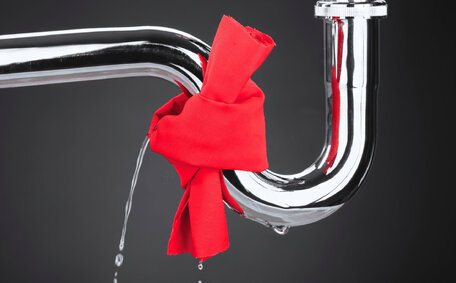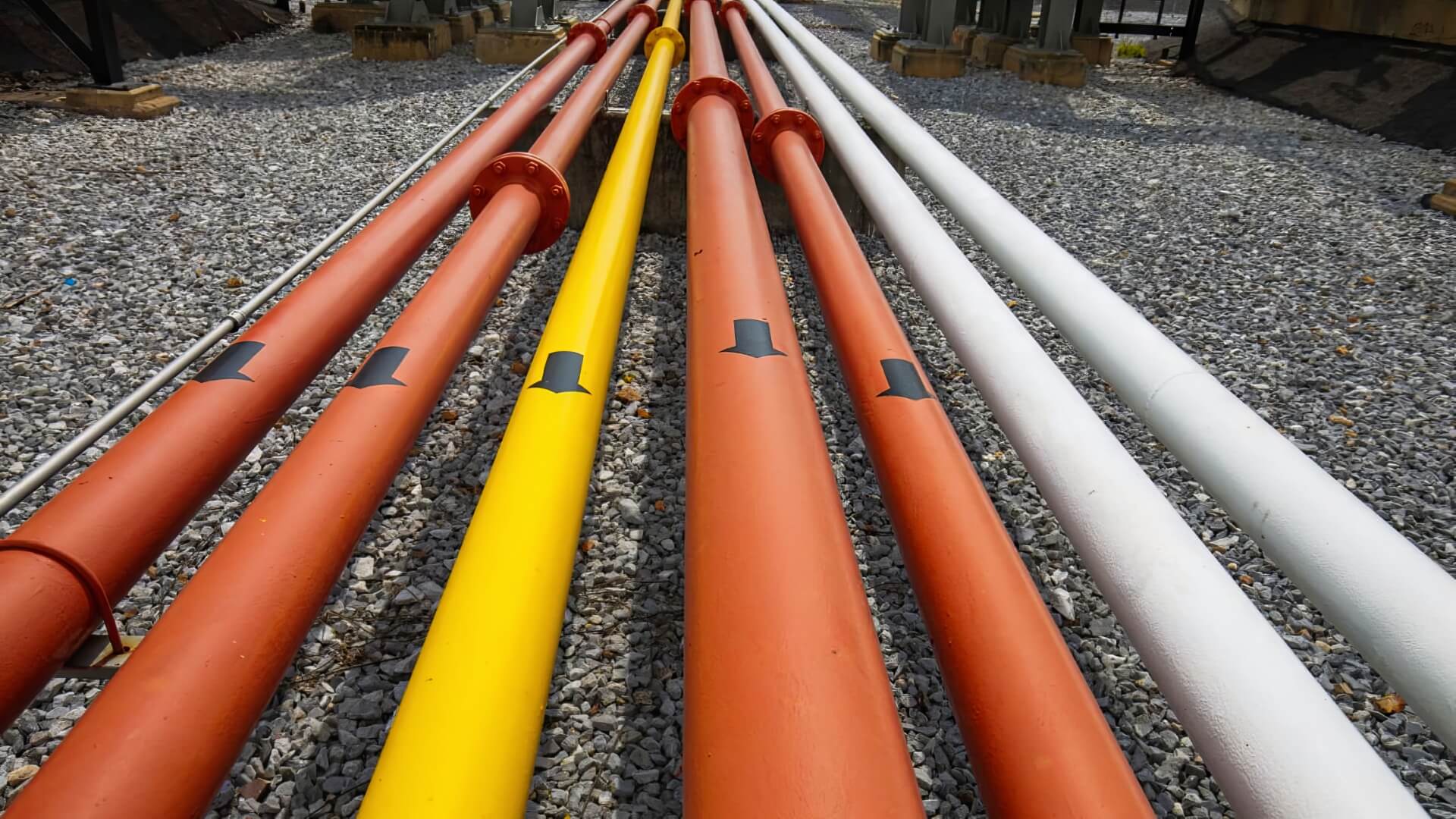Introduction to Sewer Line Blockages
Homeowners in Wetherill Park, Sydney, face significant challenges with clogged sewer lines. Sewer clogs arise when obstacles obstruct flow, posing risks of sewage backup from the city lines into your plumbing.
Blockages can also have serious consequences like sewage beginning to back up your plumbing system, causing flooding damage, and exposure to harmful bacteria. Moreover, clogged drains can produce unpleasant smells or necessitate major plumbing repairs if left unaddressed.
In this article, we’ll discuss common causes of sewer line clogs, tips to prevent them, and when to call a plumbing professional to clear a severe blockage and get your sewer line flowing again.
Most Common Causes of Blockages
We’ll outline some of the main causes of blocked drains in Wetherill Park:
- Tree roots - Tree and shrub roots, in their search for moisture, often infiltrate and block sewer pipes. Their proliferation leads to obstructed pathways in the sewer system.
- Fats and oils - Grease and other fatty substances flushed down drains can accumulate and congeal within pipes, leading to increasingly narrow pathways.
- Foreign objects - Items such as wet wipes, hygiene products, and paper towels, if flushed, get stuck and can clog your pipes by becoming ensnared within the system.
- Pipe issues - Old or damaged infrastructure, or shoddy installations can result in pipes being vulnerable, leading to a situation where the sewer line can be blocked by intrusive materials.
Household habits such as pouring fats down the drain, flushing unsuitable items, misusing garbage disposals, or ignoring invasive tree roots can, over time, lead to drain blockages if unchecked.
Foreign Objects
Disposing of unsuitable items flushed down toilet or sink pathways is a principal element that causes sewer issues. Items like wet wipes, paper towels, and sanitary products precipitate sewer blockages, unlike toilet paper which dissolves readily.
When flushed, foreign objects can snag in pipes, catch passing debris, and snowball into major obstructions. Drain pipes are only 4 inches wide on average, so it doesn’t take much to impede wastewater flow.
Contrary to some product labels, only human waste and toilet paper should be flushed to prevent clogged sewers - definitely not grease or oil. Otherwise:
- Flushable wipes (even if marked as such) should go in the trash. They do not break down fast enough.
- Sanitary items like tampons, pads, or condoms that are discarded in the toilet instead of the bin can become pipes cause severe blockages.
- Excessive amounts of toilet paper or paper towels, which resist breaking down, frequently cause drain blockages.
Educate everyone at home, especially children, about the drain blockage risks from flushing toys, a common issue. Ultimately, to avoid experiencing a sewer line issue, refrain from putting anything in toilets or drains except bodily waste and toilet paper.
Tree Roots
Tree and plant roots significantly contribute to main sewer line blockages in Wetherill Park. Roots can quest for water, with tiny hairs infiltrating any slight crack or loose joint in sewer pipes. Inside sewer lines, roots proliferate rapidly, which can soon lead to significant blockage.
Over time, even the tiniest roots can thicken and harden into masses that obstruct water flow. A sole root hair can flourish into an obstruction that can caused significant flow issues down line.
In such instances, acquiring root cutting services or undertaking a sewer line repair may become necessary. Here some prevention steps for safeguarding your sewer pipe include:
- Avoid planting trees with invasive root systems like willows, elms, or poplars near sewer lines to prevent roots from going down drain.
- Inspect and remove cap from exterior cleanouts periodically to check for root intrusions.
- Have older sewer pipes drain camera inspected, which you should do to identify cracks that can lead to root entry.
- Use root killer chemicals as preventative maintenance where root intrusions are spotted.
- Regularly pruning any problematic tree root can be effective in slowing their invasive spread.
Should you notice any roots in your main sewer line cleanout or hear gurgling drains, call plumber professionals like us - we can help identify if roots are the culprit and remedy the issue.
Grease Buildup
Grease, fats, and oils from cooking are one most common contributors to sewer line clogs in Wetherill Park homes. As grease and oil get washed down drains, they stick to pipe walls. This results in solid blockages, compromising the efficiency of your drainage system.
Some common causes include:
- Disposing of cooking oils in the kitchen sink post-frying can result in blocked sewage systems
- Washing oily dishes without scraping food residue
- Overlooking slow draining water may ignore early warnings of grease-related clogs
You can avoid grease blockages by:
- Collecting all cooking oils/fats for disposal in the trash, not sinks
- Using drain screens to trap food waste when washing dishes
- Regularly running very hot water to melt small grease deposits
- Having drains professionally cleaned to clear out any grease build up
Catching grease clogs early to clear blockage in your pipes saves major pipe repairs later. Should your drainage slow down, it may indicate a clogged drain; call professional help to address the grease build-up promptly.
Damaged Pipes
It’s critical to understand that aged, decaying, or poorly installed pipes are susceptible to clogs due to cracks, misalignments, breaks, and collapses. Damage in the pipes can cause roots, debris, sediment and more to infiltrate and create blockages.
Common pipe issues leading to sewer blockages often involve a broken pipe:
- Cracked pipes due to ground movements or age can lead to blockages challenging for sewer systems
- Separated pipe joints allowing root/debris entry
- Collapsed drain line sectors from excessive weight or soil erosion
- Improper pipe slopes or inadequate relief gully setup that allow debris accumulation
- Rusting or broken pipes
Symptoms of damaged drains can integrate into your home’s daily routine inconspicuously:
- Visible structural faults indicating a potential need for line repair
- Localised drain clogs
- Foul sewage odours may indicate a blockage from grease or oil build-up emanating from drains
- Standing water/wet spots around cleanouts or plumbing fixtures
For minor pipe damage, repairs could adequately resolve issues in the sewer drain. But extensive decay or damage inside pipes might necessitate repair replacement. An inspection can determine the best solution to restore flow.
Preventing Blockages
Proactive measures can prevent troublesome sewer line blockages:
- Use sink basket strainers to catch coffee grounds, food scraps, and debris before they enter your drains
- Thoroughly scrape plates and cookware to remove fats and oils before washing.
- Collect used cooking fats oils in a jar for disposal rather than pouring down drains
- Flush only toilet paper and dispose of wipes, towels, and hygiene items in the bin.
- Clean sinks/tub drains regularly to clear any hair down drain and soap scum
- Abstain from chemical drain cleaner usage, as they cause harm to pipes over time
- have older sewer lines inspected to proactively address potential issues before clogs materialise
- Cut back invasive tree/shrub roots regularly to prevent them obstructing pipes
- Consider trenchless sewer relining to seal cracks/joints vulnerable to root/debris entry
Employing preventative tactics will significantly reduce the risk of a sewer line clog, keeping the drains your home depends on flowing smoothly and minimizing the risk of serious sewage backups.
Your local experts are here to help offer professional drain inspections, pipe repairs, root removal, trenchless relining and all aspects of plumbing maintenance to homeowners in the Wetherill Park area. Please call us if you have any concerns about potential drainage issues or need assistance keeping your pipes clear.
Dealing with Existing Blockages
If you suspect you already have a sewer line blockage, taking initial steps such as employing a snake auger to clear it right away can help minimise backups and flooding:
- Initially, employ a plunger on the main drain to apply pressure to the pipes and displace small blockages.
- Pour hot water down sinks to aid in melting grease and provide a clear line from any fatty obstructions that may be impeding flow
- Employ a drain snake to access deeper clogs and break up accumulations like hair, soap scum, and grease, moderately effective for minor root intrusion or simple blockages.
- Avoid dumping store-bought chemical drain cleaners down toilets or sinks as these rarely resolve blockages fully in sewer lines and they damage pipes over time
However, it’s crucial to recognize that severe blockages require professional equipment and expertise for complete resolution. Continuing attempts to plunge, auger or use chemicals on major blockages pushes debris further into sewer systems, exacerbating the problem.
Reach out to your plumber straightaway if the scent of sewage permeates indoors, you notice water accumulation around floor drains, or face plumbing fixture overflows. These are signs a dangerous sewer backup is imminent, and aggressive measures are needed to rapidly clear the blockage and prevent overflows into the home.
A professional can use high-powered water jetting, mechanical augers, specialty equipment, and camera inspections to fully remove difficult clogs. Often its a combination of methods needed to remove roots, grease solidification, collapsed pipes, and other obstinate obstructions in sewer drains.
Don’t delay - severe backups can cause thousands in flooding damage quickly. Our emergency response teams stand ready to provide prompt sewer cleaning and repairs in the Wetherill Park area when sewers get backed up.
When to Call a Professional
Calling a professional plumber is crucial when DIY efforts fail to resolve blocked sewer lines. Don’t continue attempts to plunge, snake, or use drain cleaners if you experience:
- Sewage odours inside the home
- Water pooling around floor drains or exterior cleanouts
- Slow draining water or complete clogged fixtures
- Gurgling sounds from toilet or sinks
- Visible overflow or backups from drains
These warning signs indicate a dire restriction in your sewer system, necessitating advanced tools and expertise to remove the clog before devastating overflow damage ensues. Wetherill Park Plumbing has emergency teams available 24/7 to rapidly respond and prevent backups from flooding your home.
Our toolkit features advanced sewer jetting, mechanical drain augers, pipe inspection technologies, and more, equipped to tackle even the most stubborn sewer blockages. Call us at 1300 349 338 or email jobs@wetherillparkplumbingservices.com.au anytime if you suspect a dangerous clog requiring urgent professional drain cleaning or repair.
Address sewer main obstructions swiftly to avoid significant damages from sewage overflows. Rely on our capable team to efficiently address your sewer line blockages, ensuring minimal disruption to your household.






